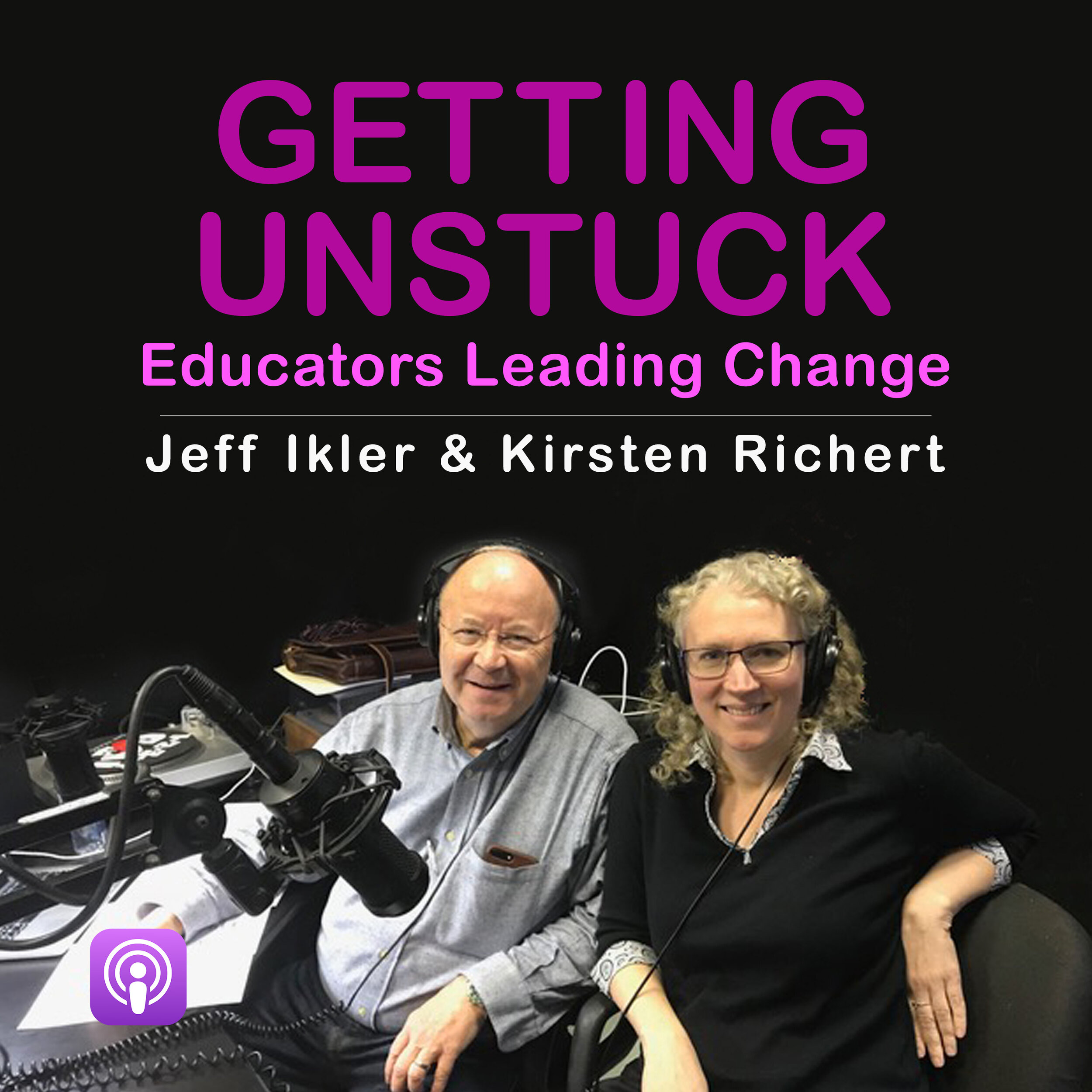Getting Unstuck #188: Helping Students Unlock Their Superpowers
“When you think back at your schooling experience, your middle school or high school experience, think about the first thing that pops into your head. The reality is for most of us is that it’s the places where we find our identity. It’s the experiences we’ve had. That type of experiential learning, that type of agency, all these words that we use, is really about opportunities to discover your identity.”
“The work that we are trying to do at Brooklyn Lab is not just about inclusion and about shifting and changing structures of power and systems of power. It's about creating advocates in their own community. We don't talk about education as a ticket out of your community. We talk about it as a ticket to empower your community. And I think we have to have really authentic conversations with our young people about how if they want to see change manifest, they have to be agents of that change.”
Our Guest
Erin Mote is the cofounder of the Brooklyn Laboratory Charter School, a community-based school organization that serves more than 800 students. She is also the Executive Director and Co-Founder of InnovateEDU. In this role, Erin leads the organization and its major projects including technology product development, work on data interoperability and data systems, and an urban education Fellowship for new educators.
Why this conversation matters
This interview is part of our “Unstuck” series. These interviews focus on school leaders who are not just getting unstuck, they’re already "unstuck." And by "Unstuck," we mean they are leading or embracing a major shift in student learning, instruction, ongoing teacher professional development, community relations, or personal leadership. They’re doing things better, not just differently, not just as part of the most recent fad or trend, but because they want to increase the likelihood that they can achieve desired outcomes on behalf of those they support.
Listen for
√ The values and building blocks that Erin and her then soon-to-be-husband, Eric Tucker, used to define the Brooklyn Lab Charter School.
√ How the school reflects the fabric of what makes the community unique and what Erin and Eric wanted to accomplish on behalf of the kids.
√ Why Erin and Eric were deliberate about referring to their students as “scholars”?
√ How does Brooklyn Lab prepare its teachers for the classroom? What qualities does the school look for?
√ How Brooklyn Lab messages about success, failure and struggle.
√ What makes Erin “tick” as a leader.
“I think we all have the ability to make an impact. Maybe you can't find a school, maybe you can't, you know, do something that you think is big. But you can make an impact on the people around you in your community. Whether they're somebody you interact with every day, whether they're your they're your student, you have the ability to change the trajectory of their life.”
Referenced
Our Founding Design Principles Equity by Design was built upon the following design principles:
We must build relationships and communities where students feel recognized and cared for, and where they can broaden their horizons. Relationships must connect students to the school’s academic life and provide relevant learning opportunities.
The locus of control must shift to allow students to manage their own learning, helping them generate and apply knowledge, research, write, code, produce, remix, and defend their views with evidence.
We must do rigorous intellectual work. Our design must focus on educating urban students to the highest standards, especially students with special needs and students at risk of academic failure.
Connect with Erin
InnovateEDU
Connect with us
• Subscribe, and consider leaving us a rating and review on
or wherever you pick up your podcasts.
• Follow “Worth a Look, Listen, or Read” on LinkedIn – our new mini-podcast that reinforces key change and innovation concepts to help you get unstuck.




